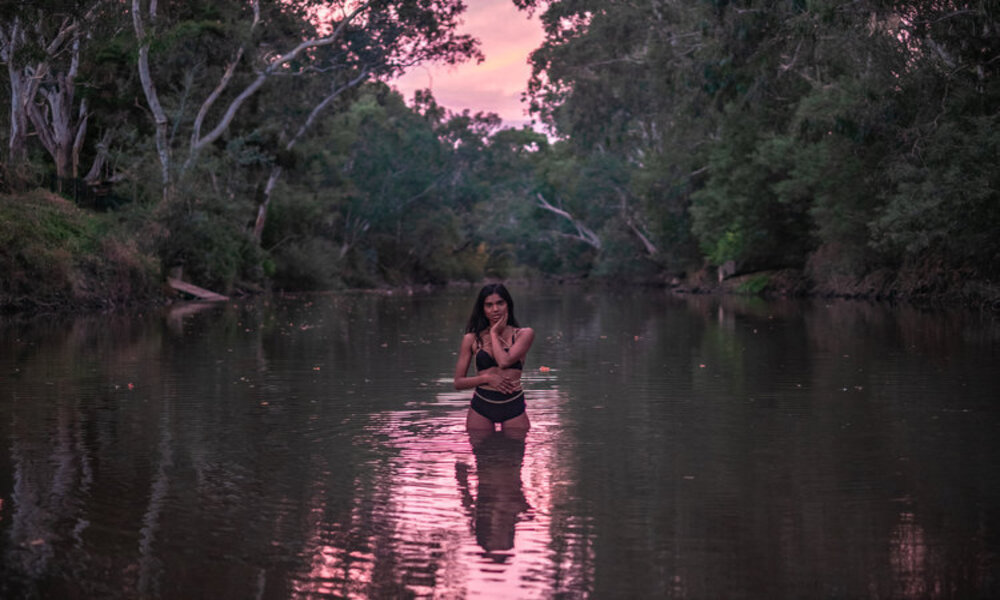The following post was originally shared via @shaktimhmelbourne on Instagram.
An issue that I believe is inadequately addressed within the South Asian diaspora is the struggle of having to assimilate within the West, and the subsequent impact this has on our mental health and everyday lives. In my personal experience, I feel as if my connection and spirituality with my culture has been severed in an effort to ‘fit in’ and assimilate to this white man’s country. Over the years, and with each passing day, I aim to unpack the trauma that this has brought me and my peers and understand where and why such events took place within my narrative and the ancestors before me.
I often trace back many of the problems within our community to the devastating effects of European colonisation, and how this Colonial Hangover is still felt to this day. Growing up, I rarely saw my parents because much of their time was spent trying to help us survive in this foreign land. The time that should have been spent with us—teaching us our languages, culture, customs and feeding us our food—was instead spent working. The fact that we came to this country with nothing meant that we had to create our opportunities—meaning that my only connection to my culture and my parents was lost as a child because it was instead spent working to survive.
View this post on Instagram
I remember staring at my reflection and looking back at a brown boy and feeling so confused as to why my skin and face were the way it was, succumbing to feel like an alien in my own body. My youth was spent being exposed to the standards of White Australia and questioning why I didn’t fit into this imposed White narrative. Being taught my heritage confused me because I hadn’t spent that valuable time with my parents, so I had to learn about my South Asian identity from the white man. He told me that my skin was dirty—that I was dirty, along with lazy, uneducated and a pest to society. I began to internalise these backward Orientalist beliefs and enter into a cycle of internalised self-loathing.
[Read related: A Theory on why Contemporary Indians are Obsessed With Reputation
For so long, I rejected my Brownness. I remember days spent trying to fit in by acting ‘white,’ and the long showers during which I would rub my skin so hard to wash away my ‘dirty skin’ that it would result in a rash. I went through a period where I severely lacked pride in both myself and my culture.
I can proudly say that through a process of unlearning, I have reclaimed my identity—albeit it is still met with resentment and is a daily struggle. There is difficulty in attempting to embrace your culture in Australia, for although we may front ourselves as a multicultural society, I don’t believe infrastructure exists in allowing for a true flourishment of diverse cultures. Still, I am often met with stereotypes of what my culture is from the white man. The exoticism of South Asia is prevalent in the Western portrayal of Indian culture through yoga, saris, bindis and colour festivals, which is all that is glorified, and in many instances, appropriated.
Over the years I have come to learn that my culture is composed of diversity and detail and is not a broad caricature from a second-hand and outside perspective. It feels as though sometimes, I’m in a desert and I see access to my culture here as an oasis, but this oasis turns out to be a mirage that only brings me closer to exhaustion after chasing it.
Alas, this is what I live and struggle with each day. Yes, it is true that I have indeed lost a vital connection to my culture, however, this does not make me less ‘Indian’ as some try to categorise, nor does it mean that I lack culture. This generation is in a blessed position for we can push and create a culture to a greater extent than ever before—be it through our achievements, innovations, or art.
View this post on Instagram
For me, I have found my outlet through an artistic practice of photography. We are in a unique situation of having the privilege of understanding and fighting back our oppression, a privilege our ancestors didn’t have. ‘Time’ was never a luxury for our ancestors so I now use this modern luxury to articulate the trauma that has been passed down for generations, knowing that my family’s trauma stops with me, and therefore, my culture’s Colonial Hangover stops with me as well.





